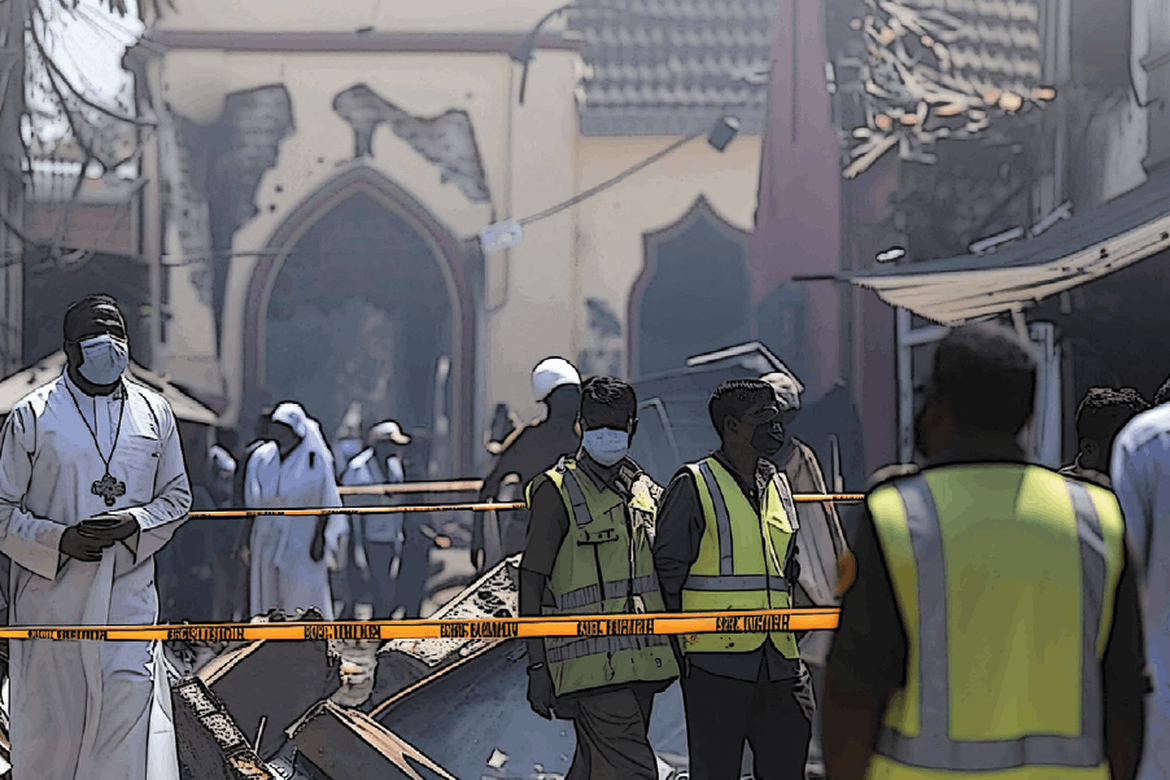Christians Most Vulnerable to Hate Speech
Sri Lanka: Government authorities are attempting to undermine Christian leaders and church officials.

A recent study shows how Christian leaders are being undermined by state actors in Sri Lanka. The picture is an excerpt from the cover of a study by NCEASL. Illustration: NCEASL
Written by Johannes Morken. Photo by: NCEASL.
Christians in Sri Lanka are the most vulnerable to hate speech on social media compared to other religious groups, with Muslims ranking second.
This finding is from a study conducted by the National Christian Evangelical Alliance of Sri Lanka (NCEASL). The research was carried out by Verité Research and focuses on trends in violence against Christians in Sri Lanka from November 2022 to October 2023.
Researchers examined 470 social media posts containing hate speech against mainstream religions in Sri Lanka. 85 per cent of these posts came from Facebook and 9 per cent from TikTok. One of the screenshots in the report reads: "Born again. Arrest them."
60 per cent of the social media posts examined targeted Christians. Muslims were the focus of 29 per cent of the posts, Hindus were targeted in 8 per cent and 3 per cent were directed at Buddhists, the majority religion in Sri Lanka.
State Discrimination and Violence
The researchers conducted an in-depth study of 63 incidents classified as violence against Christians. They also examined some incidents of violence against Muslims and Hindus, but had insufficient data to describe these in detail.
They conclude that violence against Christians in Sri Lanka is perpetrated by both state actors and identified non-state actors. Violence is defined as more than physical violence. State actors often engage in discriminatory actions and coercion, the mildest forms of what is considered violence. Non-state actors tend to use more direct physical violence. Both types of actors often go unpunished.
Three out of four posts were classified as hate speech. The rest were divided between harassment (15 per cent), incitement to violence (15 per cent) and disinformation (5 per cent).
The state has a duty to protect the constitutional right to freedom of religion, which is also safeguarded by the International Covenant on Civil and Political Rights. On the other hand, state bodies, including the police, often act as perpetrators against religious minorities, including Christians.
Undermining Christian Leaders
State representatives tend to target Christian leaders, church officials, and Christian symbols, while non-state actors often focus on individual Christians and churchgoers.
– "State involvement in attacks on pastors and places of worship has decreased somewhat in the studied period compared to earlier, but it has remained high in studies of all periods. These government actors seem to believe that by undermining key figures such as Christian pastors and leaders and places of worship, they can reduce or even eliminate the Christian presence in an area," the researchers write.